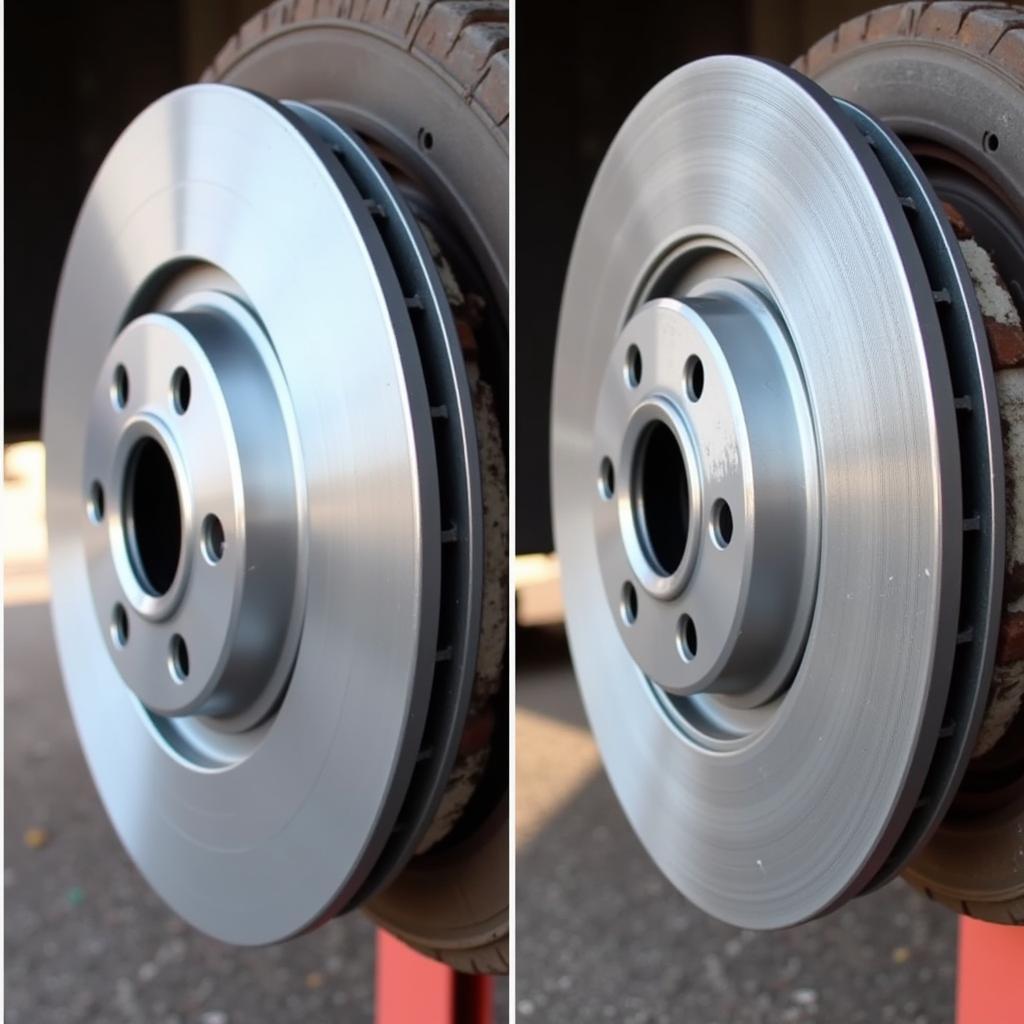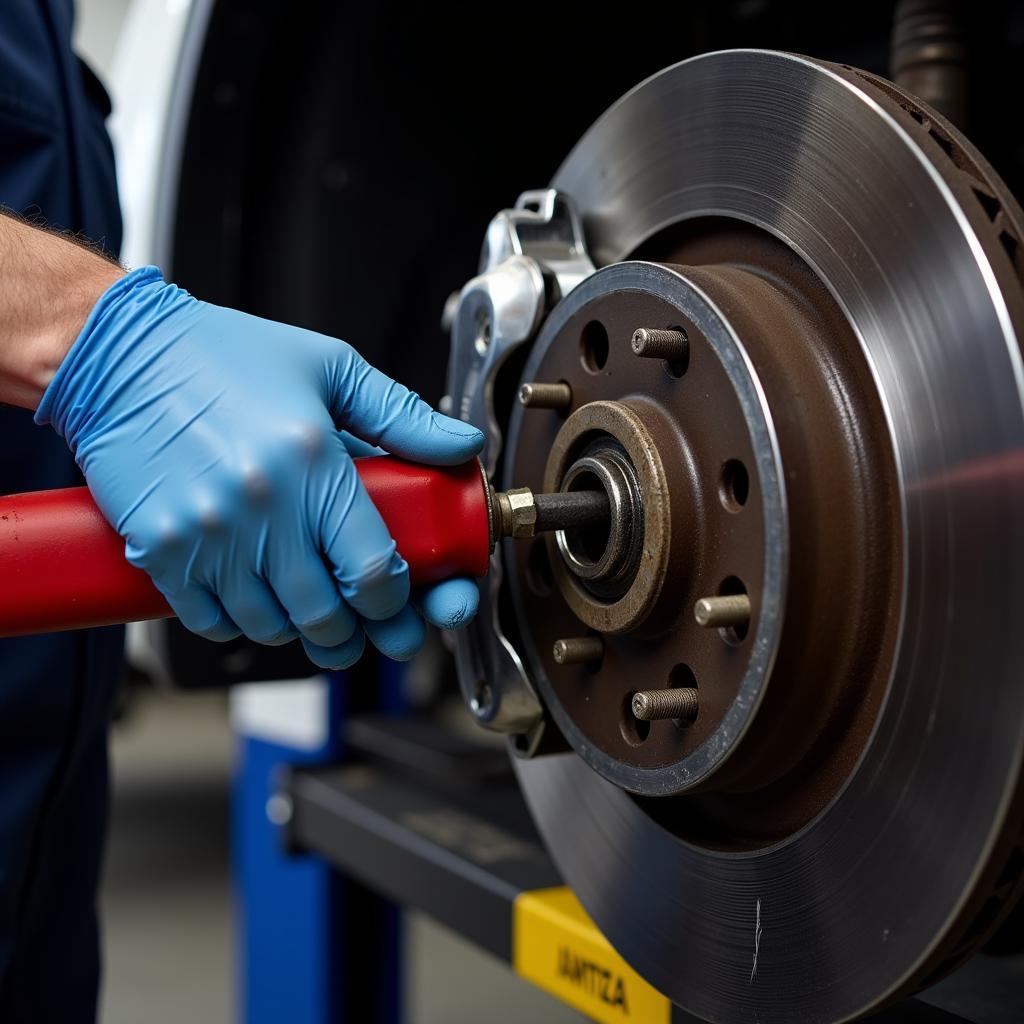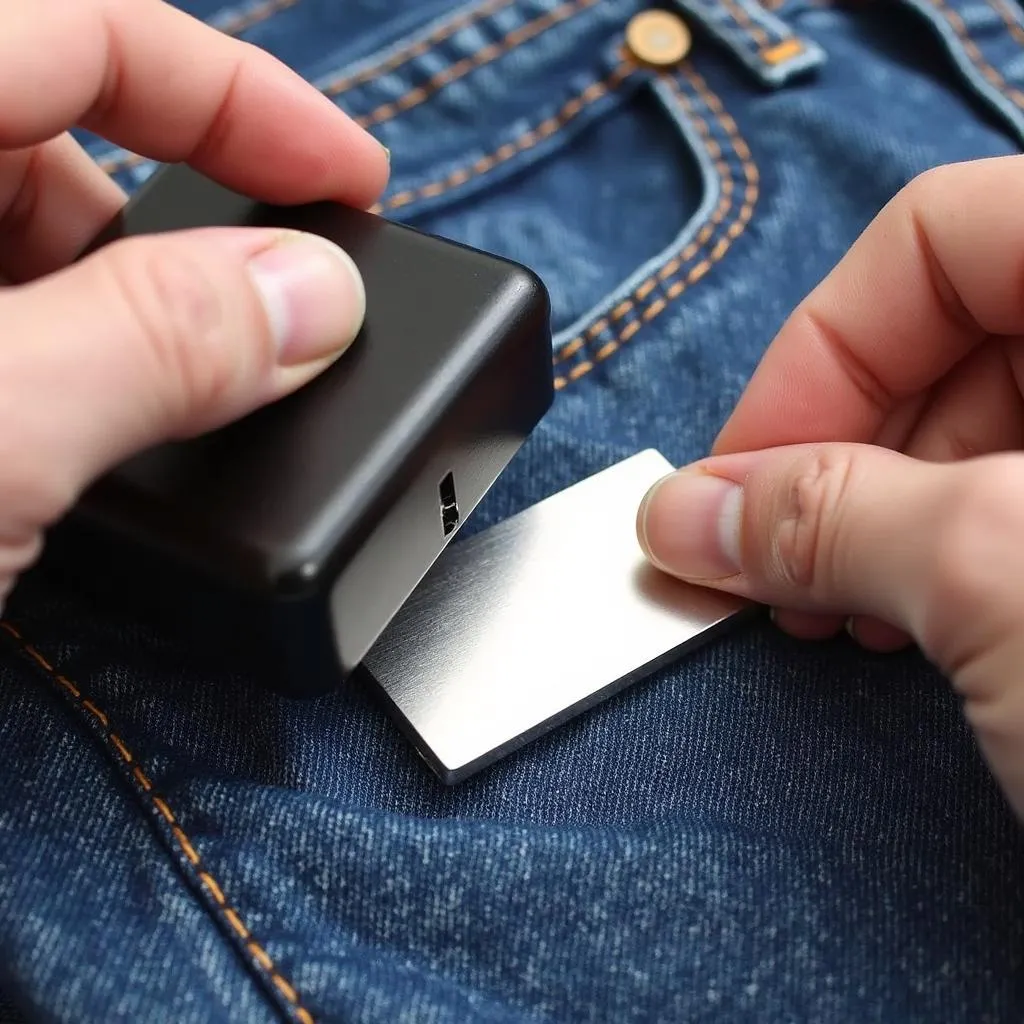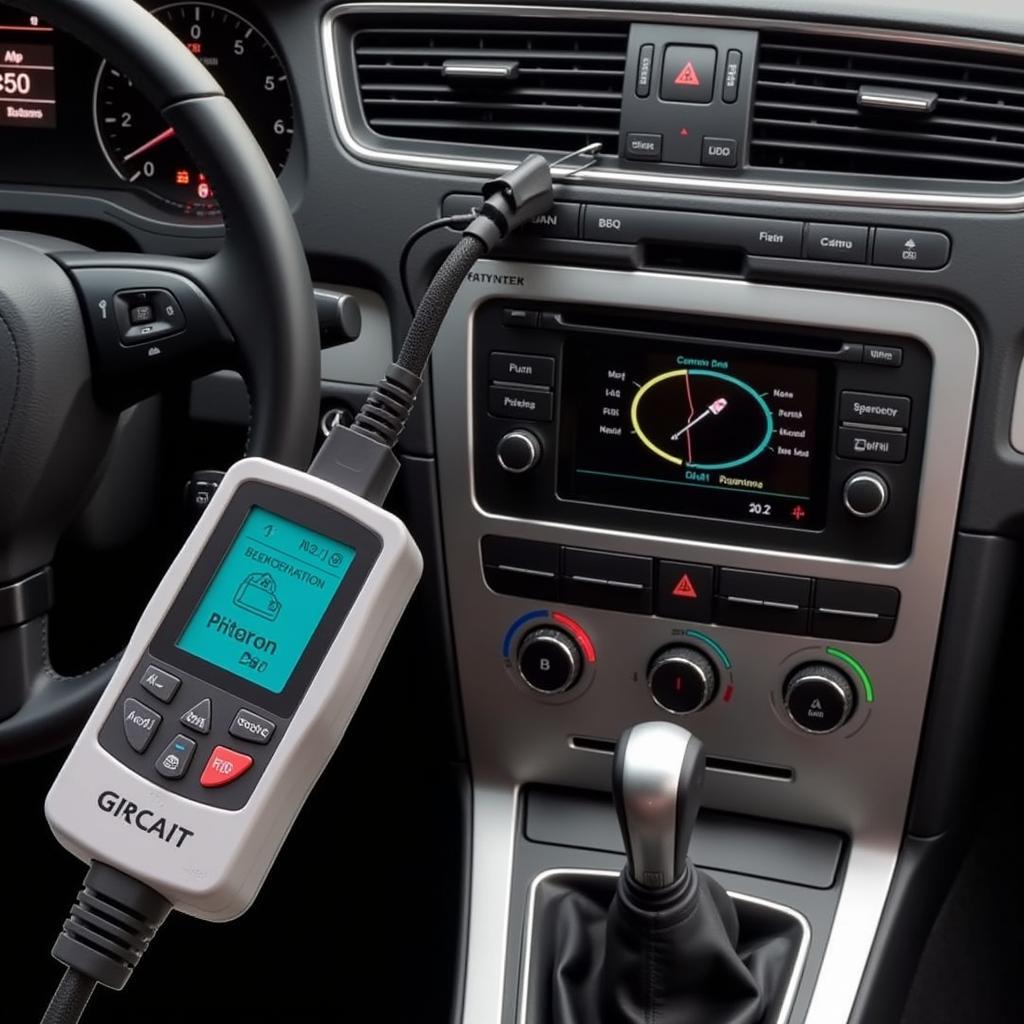Have your brakes started making a horrifying grinding sound recently? Or perhaps a light flickered on your dashboard that looks like this: . These are common signs of worn brake rotors, a problem you shouldn’t ignore. This comprehensive guide will cover everything you need to know about brake rotors warnings, from understanding why they occur to how to address them.
Why Are My Brake Rotors Giving Me a Warning?
Brake rotors, also known as brake discs, are the metal discs that your brake pads clamp down on to stop your car. Over time, due to the constant friction and heat generated during braking, these rotors wear down.
Several factors can contribute to your brake rotors wearing down and triggering a warning:
- Normal Wear and Tear: Like any car part, brake rotors have a lifespan. The more you drive and brake, the faster they wear down.
- Driving Habits: Aggressive driving, with frequent hard braking, puts excessive stress on your brakes, accelerating rotor wear.
- Environmental Factors: Driving in hilly or mountainous areas, or frequently carrying heavy loads, can also put extra strain on your brake system.
- Poor Quality Parts: Cheap or substandard brake rotors may wear down faster than high-quality ones.
Recognizing Brake Rotor Problems
 Comparison of a new and worn brake rotor.
Comparison of a new and worn brake rotor.
Ignoring warning signs of brake rotor problems can lead to more serious and costly issues down the line. Be on the lookout for these common indicators:
- Warning Lights: The most obvious sign is the illumination of the brake warning light on your dashboard.
- Screeching or Grinding Noises: High-pitched squealing when braking often signals worn brake pads, which can also impact rotor wear. A grinding noise, however, usually means the brake pads are completely worn, and metal is scraping against metal, indicating severe rotor damage.
- Vibrations: If you feel vibrations or pulsations in the brake pedal or steering wheel when braking, it could indicate warped rotors.
- Reduced Braking Performance: Worn rotors can reduce your car’s braking efficiency, increasing the distance required to come to a complete stop.
What to Do When You Get a Brake Rotor Warning
If you experience any of the symptoms mentioned above, it’s crucial to take immediate action:
- Don’t Panic, But Don’t Delay: While a brake rotor warning shouldn’t cause panic, it’s vital to address the issue promptly. Continuing to drive with damaged rotors compromises your safety and can lead to more extensive damage.
- Consult a Professional: Unless you have advanced mechanical skills, it’s best to take your car to a trusted mechanic specializing in brake repair. They have the expertise and tools to diagnose the problem accurately.
- Discuss Your Options: Depending on the severity of the wear, your mechanic will likely recommend either resurfacing or replacing the rotors. They can advise you on the best course of action based on your car’s make and model, your driving habits, and your budget.
Preventing Future Brake Rotor Issues
 Mechanic inspecting brake pads and rotors.
Mechanic inspecting brake pads and rotors.
While brake rotor wear is inevitable, you can take steps to prolong their lifespan and prevent premature wear:
- Smooth Braking: Avoid hard braking whenever possible. Anticipate stops and gradually slow down.
- Lighten the Load: Reduce unnecessary weight in your car, as carrying heavy loads puts extra stress on your brakes.
- Regular Inspections: Have your brakes inspected by a qualified mechanic at least once a year, or more frequently if you drive in demanding conditions.
- Quality Parts: When it’s time for replacements, invest in high-quality brake rotors and pads from reputable brands.
Don’t Ignore the Warning Signs
Your car’s brake system is crucial for your safety and the safety of others on the road. Ignoring a brake rotors warning is like playing a dangerous game of chance. Address any signs of brake trouble promptly and consult with a trusted mechanic to keep your car stopping safely and reliably. For more information on specific brake warning lights, you can check out this helpful resource: brake warning light symbol car.
FAQ
Q: How long do brake rotors typically last?
A: The lifespan of brake rotors varies greatly depending on driving habits, vehicle type, and environmental factors. Generally, they can last anywhere from 30,000 to 70,000 miles.
Q: Can I just replace my brake pads and not the rotors?
A: While it’s possible to replace just the pads if the rotors are still in good condition, it’s often recommended to resurface or replace them simultaneously to ensure optimal braking performance and prevent uneven wear.
Q: How much does it cost to fix brake rotors?
A: The cost of brake rotor repair depends on whether they need resurfacing or replacement, the make and model of your vehicle, and labor costs in your area.
Q: Can driving with worn brake rotors damage my car?
A: Yes, driving with worn brake rotors can damage other brake components, such as calipers and pads, leading to more costly repairs.
Q: Is it safe to drive with a brake rotor warning light on?
A: It’s not safe to continue driving normally with a brake rotor warning light on. Have your brakes inspected by a professional as soon as possible to diagnose and address the issue. For more insights into specific car models and their brake warning systems, you can refer to resources like this: 2012 audi a8 brake pad warning light. Remember, your safety is paramount.


